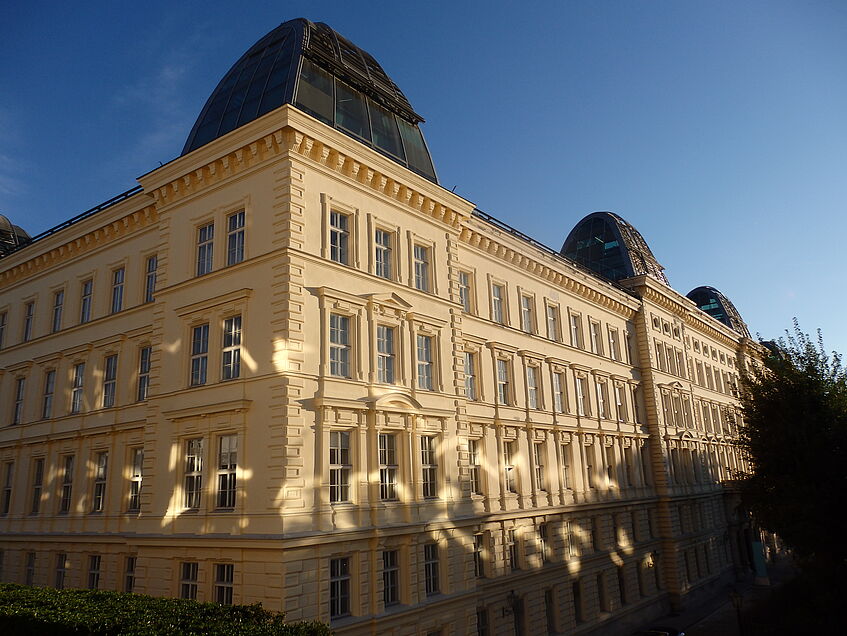European Ethnology (Master)
Hanuschgasse 3, Institut für Europäische Ethnologie. GNU FDL vers. 1.2 © Universität Wien / Institut für Europäische Ethnologie
The master’s programme in European Ethnology equips students with knowledge of the historical context and present dispositions of daily practice and cultural manifestations in European societies. In addition, it provides them with competences in theory-based specialist methodology and scientific working skills. Developing own research questions and dealing with them independently is one of the key characteristics of the master’s programme, which aims at further developing students’ research competences and qualifying them for future employment.
Master of Arts
Degree Programme Code: 066 823
4 semesters / 120 ECTS credits
Language: German
NO entrance examination
Facts & Figures
- Students: n.a.
- Graduates in the last academic year: n.a.
- Number of semesters needed for graduation (median): n.a.
Data updated on: 03.12.2024
Attention
Instruction Language German
Please note that the instruction language of this programme is German. To start the degree programme, you need to hold a certificate of German proficiency on C1 level.
Admission Procedure
Information about the admission procedure
Information on Previous Studies:
In any case eligible degree programmes at the University of Vienna:
Getting started
Study Programme
The master’s programme consists of the following compulsory modules: "Media, Discourse and Representation", "Space-Time Configurations", "Cultural Practices and Semiosis in Everyday Life", "Cultural Practices and Semiosis in Everyday Life", "Knowledge and Materiality", "Methodology and Fields of Work", "Research Project" and "Master". To complete the programme, students have to write a master’s thesis and pass a master’s examination.
Five Concepts
which you will deal with during your studies:
- Culture and region
- Ethnography and epistemology
- Historicity
- Knowledge (research) and representation
- Culture theories
...and many more.
Overview of the programme structure & topics
Here you find the current offer of courses for this programme to gain better insight into the topics and structure. For more information please click on the respective level.
After Graduation
Graduates can pursue a career in the following areas:
- museums and archives
- advertising agencies, publishing, media
- educational institutions
- NGOs
- research and university institutions
- international institutions.
Graduates' Perspective on the Degree Programme
Graduates ...
- say that this degree programme receives the grade: 2.3 (good)
- rate the level of difficulty as: 3.4 (appropriate)
→ These results are based on feedback from 12 graduates.
*You can find further assessments of the degree programme from its graduates’ perspective in the graduate survey of the master’s programme in European Ethnology (in German).

